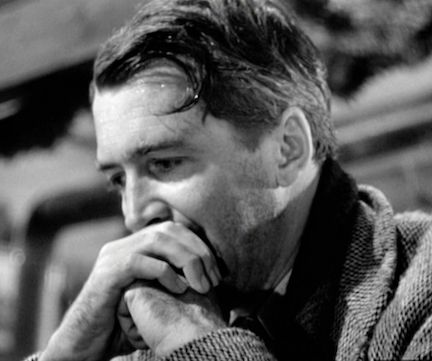Our Children Are a Part of Us
What an amazing piece of art, digital though it may be. In it, the essence and even substance of the child is "made" from the essense and substance of the parent. The one's holes are the other's gain.

[Though it is digital] it is not an AI-generated piece. It was created by Chad Knight, a digital artist known for his surreal and emotionally resonant 3D art … this sculpture is a digital creation and doesn’t exist as a tangible, physical object. It was rendered using 3D modeling software and is meant to be experienced visually on screens rather than in a gallery or museum space.
This grpahic artistry captures beautifully the symbiotic relationship between parent and child. Our children are literally formed out of the matter our own physical being -- the egg, the sperm, the DNA which we contribute. Then as we raise them, we continually, sacrificially give ourselves to them for their growth and welfare. Over time, they are molded and shaped by the fabric of our being, and then reflect, to some measure, the image of our likeness. We are inextricably intertwined.
And yet, as significant as our own symbiotic relationship is with our children, it is infinitely more true of our relationship with God, our Father. We are made in His image. It is He that has made us. In the Person of Jesus, He sacrficed Himself for our own welfare. He is our ultimate model, and we are called to be conformed to His image.
"So God created man in his own image, in the image of God he created him; male and female he created them" (Genesis 1:27, ESV).
"And to put on the new self, created after the likeness of God in true righteousness and holiness" (Ephesians 4:24, ESV).
It's a Wonderful, Self-sacrificial Life
Frank Capra’s 1946 film “It’s a Wonderful Life” was at one time considered possibly the most “can’t miss” holiday film, with multiple generations of America watching it every year at Christmastime. It seems that it has failed to translate to recent generations, falling out of most younger people’s lists of favorite Christmas movies. The most obvious reason that this film has become less popular in recent decades is that it is nearly 80 years old and shot in black and white. But as I was watching it this past [Christmas Season] I noticed a few other reasons why the film’s storyline and values resonate less and less with Americans as time goes by.
“It’s a Wonderful Life” tells the story of a man named George Bailey from a small middle American town called Bedford Falls. Ever since George was a boy he had grand dreams in his head of all the places in the world he would travel and all the magnificent experiences he would have and what a name he would make for himself. And yet, time and again, George’s pursuit of his dreams is stymied by his life circumstances. Over and over during the course of his life, when George is about set to chase his dreams, disaster strikes … Responsibility calls … Life happens. And at every challenge, George does the right thing. He denies himself. He answers the call to service and responsibility, serving the poor of his local community and his family.
But, even when doing right, he unknowingly allows a seed of resentment to grow in his heart.
When George’s business is faced with bankruptcy he, despondent, goes to a bridge and contemplates taking his own life. From his perspective, his life has been a failure. He hasn’t pursued his dreams, he hasn’t attained his goals, he hasn’t been true to himself, he hasn’t followed his heart. He has denied himself and served others his whole life and for what? Life in a broken down old house, running a bankrupt business, serving a bunch of ungrateful nobodies in a nowhere town? Maybe it would have been better if I had never been born, he concludes.
Thankfully, his guardian angel intervenes and shows him all of the ways his service has touched and changed the lives of others. George leaves the bridge without any of the circumstances of life having been changed, but he has a new perspective. He no longer resents his family, his broken down house, the people of his little town. He sees them as beautiful and worthy of his love and care regardless of their flaws.
The film could have ended there, honestly. The victory was won. but Hollywood needs things to be wrapped up in a sentimental and “on the nose” fashion of course, so the whole town arrives to shower George with love and to donate money to pay off his debts.

Now, I ask, why is this story not translating to modern Americans? Because our value system has fundamentally changed as a culture. Our greatest good is now to be authentic to your individual self. It is considered deeply, psychologically unhealthy to deny your desires for the good of others. Our shared cultural imagination now holds self fulfillment as the greatest good rather than self denial. Self-denial has gone from being a mark of highest virtue to instead be considered a pathology.
Choose almost any popular film or book written in the past 50 years and you will find the protagonist usually has some version of this character arch: their community has been oppressing them, stifling their creativity, stifling their self expression. Their cultures do not allow them full self expression and so they must go beyond the bounds of their society on a journey to find themselves. To follow their heart. And by following their own desires and instincts, they become a fully actualized, a truly happy person who is able to go back home and save the day, showing everyone just how wrong they were to doubt them.
"It’s a Wonderful Life" tells a very different story. It says that George, in setting aside his dreams and submitting to a life of responsibility, unwittingly has the most fulfilled and satisfying life possible. This is deeply offensive to our 21st century sensibilities. It is definitely a more Eastern, older world, collective, perspective. And yet, not completely so. Because, rather than devaluing the individual, it emphasizes the immeasurable value and impact of every individual person, every human life. This elevation of individual value is different from simply an old-world, Eastern, collective viewpoint. It is, whether intentionally or not, a deeply Christian way of looking at things.
The Bible consistently holds up to us the message that love and service of God and others, along with the mastery of our own selfishness, leads to our deepest possible fulfillment. That pursuit of self is, literally, hell.
Jesus is our greatest example of setting aside self ambition in order to love and serve the undeserving and ungrateful Other. He himself refers to John the Baptist in Matthew 11 as the greatest man who ever lived. John was one whose humble life goal was to decrease his personal self in order that others’ view of God would increase. John dies impoverished in a prison cell. Not a Hollywood ending, to be sure. But, according to Jesus, his life, poured out in service to God and others, was the most wonderful life ever lived.
"He must become greater and greater, and I must become less and less" (John 3:30, NLT).
Take My Spot, Please
The Independent reports that, a "Japanese company has implemented a radical parking strategy that has caught the world’s attention."
The strategy, which involves early employees sacrificing their parking spots for harmony, reflects the deep-rooted cultural values of cooperation and consideration in Japanese society.
To address the issue, they have adopted a system where employees who arrive early enough to secure a parking spot must forfeit it to a colleague who arrives later.
This selfless act ensures that those who live farther away or have more difficulty finding alternative transportation can have a guaranteed spot.

The Independent continues:
The system is a demonstration of the Japanese work ethic and the value placed on teamwork and mutual support. It underscores the importance of considering the needs of others and working together for the common good, even at the expense of personal convenience.
Critics might argue that such a system could lead to resentment or abuse, but reports indicate that it has been well-received by the company’s employees. The strategy seems to foster a sense of community and shared responsibility, reinforcing the bonds between colleagues and promoting a positive work environment. ...
[The program] offers a compelling case study of the power of collective action and the importance of prioritizing community over individual gain.
As Christians, the Lord calls us to adopt just such a "radical stratedgy" in ALL our dealings with others, putting the needs of others above our own. In this way, we can build a genuine sense of community among the brethren, and demonstrate a genuine desire to be witness to Christ's selfless love to the unsaved.
"Do nothing out of selfish ambition or vain conceit. Rather, in humility value others above yourselves, not looking to your own interests but each of you to the interests of the others" (Philippians 2:3-4, NIV).
"For the whole law is fulfilled in one word: 'You shall love your neighbor as yourself'" (Galatians 5:14, ESV).
"Be kindly affectionate to one another with brotherly love, in honor giving preference to one another" (Romans 12:10, NKJV).